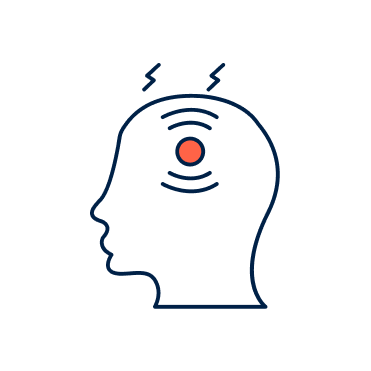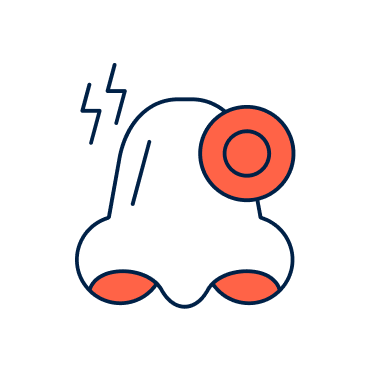
What is it?
Traditional allergy medicine, like antihistamines, offer limited effectiveness and doesn’t cure allergies. You'll be taking steroids or pill popping for the rest of your life.
This is exposure therapy - by exposing yourself to the allergy, starting with small doses and then gradually increasing, you can train your body to overcome your allergy.
This is a medically accepted treatment, once available only through specialists and now made available directly to you.
Affordable, effective, and long term treatment is here - Available only via prescription through AllergyRhino
How much you can save


When symptoms stop, costs stop
AllergyRhino patients stop paying for allergy meds, while others with moderate or severe symptoms keep spending £200–£600 a year.
Long-term results
In seven years, AllergyRhino users save up to 60% compared to ongoing antihistamine and spray use — and stay symptom-free.
How it works
Allergy Shop
Our treatments are packed with the most effective and natural ingredients out there to provide long-term relief for indoor and outdoor allergies.

How you'll feel over time

3 to 6 months
Relief begins
Easier breathing, less congestion, noticeable relief
9 to 12 months
Stronger tolerance
As much as 70% fewer symptoms with less disruption to your work, sleep and daily life
3 years
Allergy Freedom
Lifelong allergy freedom and protection against new allergies
Month 9 -12 up to 70% symptom reduction
What our patients are saying
"After years of suffering, I finally found relief with AllergyRhino" After suffering for many years with dust allergies and lots of ineffective medication prescribed, my only way to deal with my allergies was to avoid the situation, this became impossible with my job in a stuffy dusty office. I needed to find a real long term solution, after lots of searching I found Allergy Rhino, the only place of it's kind I think in the UK. Now 3 months in, I am starting to feel benefits, I can sleep at night in the summer with a fan on (which I could not do before due to the dust that fans blow around) and I'm sticking with the medication for the recommended period so that I can build up my long term tolerance to dust. My advice to anybody if you have an allergy, speak to AllergyRhino (the website is easy to use and they don't use medical jargon), I'm sure they will be able to help you. The service is quick and professional and reasonably priced, you have nothing to lose and it's quite likely your long term quality of life will improve.
James A
"My hay fever has gone from life-disrupting to barely noticeable." I’ve had hay fever for the past ten years, and every time summer approaches, I get anxious. While most people look forward to the sunshine, I’ve come to dread it. For me, summer has meant months of grogginess, constant tiredness, and relentless itching... No standard medication worked. Antihistamines either left me drowsy or made no difference at all. I had no choice but to manage the symptoms rather than tackle the cause, and even then, the relief was limited. I’ve been on treatment for half a year now, and I’ve already noticed a big difference this hayfever season. The symptoms have become a mild annoyance rather than something that completely disrupts my life. I can finally sleep through the night without being woken by painfully itchy ears and nose. I’m genuinely excited to see how things progress in the years ahead. For the first time in a decade, I feel hopeful that I might be able to enjoy summer like everyone else.
Brandon R
"I’m on the path to finally ending years of relentless hay fever." I’ve had terrible hayfever symptoms all my life and take a myriad of drugs on a daily basis from January until September. When I heard about immunotherapy I was desperate to try to reduce or even remove my symptoms. Setup with Allergy Rhino was really easy. Website easy to use and professional and that was reassuring. I had a consultative call and then did a blood test at home which was a professional 3rd party provided standard kit and was easy to use. The results confirmed I reacted to various pollens (which I absolutely already knew but it was great to see it on paper!) and so we started the process. The nurse and doctor (remotely) supported me well and I was able to confidently continue and now I am just on a path to success (hopefully). It will take some time but I am looking forward to finally reducing these life affecting symptoms. Hard not to recommend - anything to stop me taking 3 hayfever tablets, eye drops and sometimes a nasal inhaler every day for 9 months of the year!
David B
How you'll feel over time

3–6 months
Easier breathing, less congestion, noticeable relief

9–12 months
As much as 70% fewer symptoms with less disruption to your work, sleep and daily life

3 years
Lifelong allergy freedom and protection against new allergies
Notify me when other treatments are available
We’ll let you know by email when our treatments launch for your allergy. We cover weed pollen, mould, cat, dog and horse allergy drops. We will send you an email only for this purpose.
Made by world leading allergy experts
From NHS consultants to professors of allergy medicine, and medical advisors our treatments are designed by experts at the very top of their field.

Professor Adam Fox
Professor of Paediatric Allergy at Guy's & St Thomas' Hospitals

Professor Stephen Till
Professor in Adult Allergy at Guy’s and St Thomas’ Hospitals and King’s College London

Pooja Sikka, MD
General Practitioner/MD

Professor Sneh Khemka CBE
Surgeon | LBC Radio Doctor | Ex-medical Director BUPA

Clinically proven

Natural ingredients

No GP referral needed

No long waitlists
Allergy symptoms can quietly take over your daily life

Trouble concentrating

Poor sleep quality

Headaches and brain fog

Inflamed sinuses

Coughing or throat iritation

Interrupted exercise or outdoor time

Reduced productivity

Social withdrawal due to symptoms
Allergy immunotherapy explained

What is allergy immunotherapy?
It’s the only treatment that tackles the root cause of allergies. Instead of just masking symptoms, it works by gradually retraining your immune system to stop overreacting to allergens like pollen, dust mites, or pets.

How does it work?
You take small, controlled doses of the allergen as a tablet or spray under your tongue. Over time, your immune system builds tolerance, leading to fewer symptoms and lasting relief.

Why AllergyRhino immunotherapy?
Our treatments are clinically proven, trusted by leading allergists, and easy to take at home. Most patients see meaningful improvements within months, with benefits that last long after treatment ends.

The Science
Our treatment is a form of allergy desensitisation. By safely exposing your immune system to tiny daily doses of the substances you’re allergic to (via a spray under the tongue), your body gradually becomes tolerant. You react less to pollen, dust mites, pets or moulds. This tackles the root cause, unlike antihistamines or nasal sprays that only mask symptoms.
-
SLIT is well-studied and recognised as safe and effective in multiple independent reviews (World allergy organisation position paper).
-
Benefits are durable: many patients continue to feel better years after finishing a full course.
SLIT is widely used across Europe (e.g., prescribed far more frequently in Germany) and is increasingly adopted in progressive healthcare systems.
-
Because it’s needle-free, home-based, and disease-modifying. In countries like Germany, SLIT is prescribed dramatically more often than shots. Real-world and clinical data show consistent, increasing relief over multi-year courses, aligning with our goal: long-term control rather than seasonal firefighting.
Yes. Immunotherapy changes how your immune system behaves. Evidence shows benefits build over time across a typical ~3-year course and often persist ≥8 years after completion.
In the UK, allergy care is often limited to short-term relief medicines or allergy shots available only in specialist centres. Sublingual sprays are widely used in Europe (for example, prescribed far more often in Germany and in the USA) but are still not standard in NHS practice.
AllergyRhino makes this proven therapy more accessible in the UK through a combination of pharmacy partners, online consultations, and UK-regulated prescription sprays.
Will this work for me?
You’re likely a good fit if you have hay fever or year-round symptoms (grass/tree/weed pollens, house-dust mite, pet dander, mould), if OTC meds aren’t enough, and you want a long-term fix.
-
Pollens: grass, tree, weed (seasonal hay fever)
-
House dust mite (year-round)
-
Pet dander: cat, dog
-
Mould spores
Some additional indications are in development as evidence and supply pathways expand.
-
Most patients notice improvements in 3–6 months, with significant relief at 12 months. To achieve long-term results, the typical course is around 3 years.
You won’t need to stay on SLIT forever—once your immune system has been retrained, the benefits usually persist for years after stopping.
Studies show patients continue to benefit for many years after completing therapy. In some cases, the improvements have lasted 8+ years. For many, it feels like being allergy-free.
World allergy organisation position paper: https://pmc.ncbi.nlm.nih.gov/articles/PMC3983904/


_logo_svg.webp)













